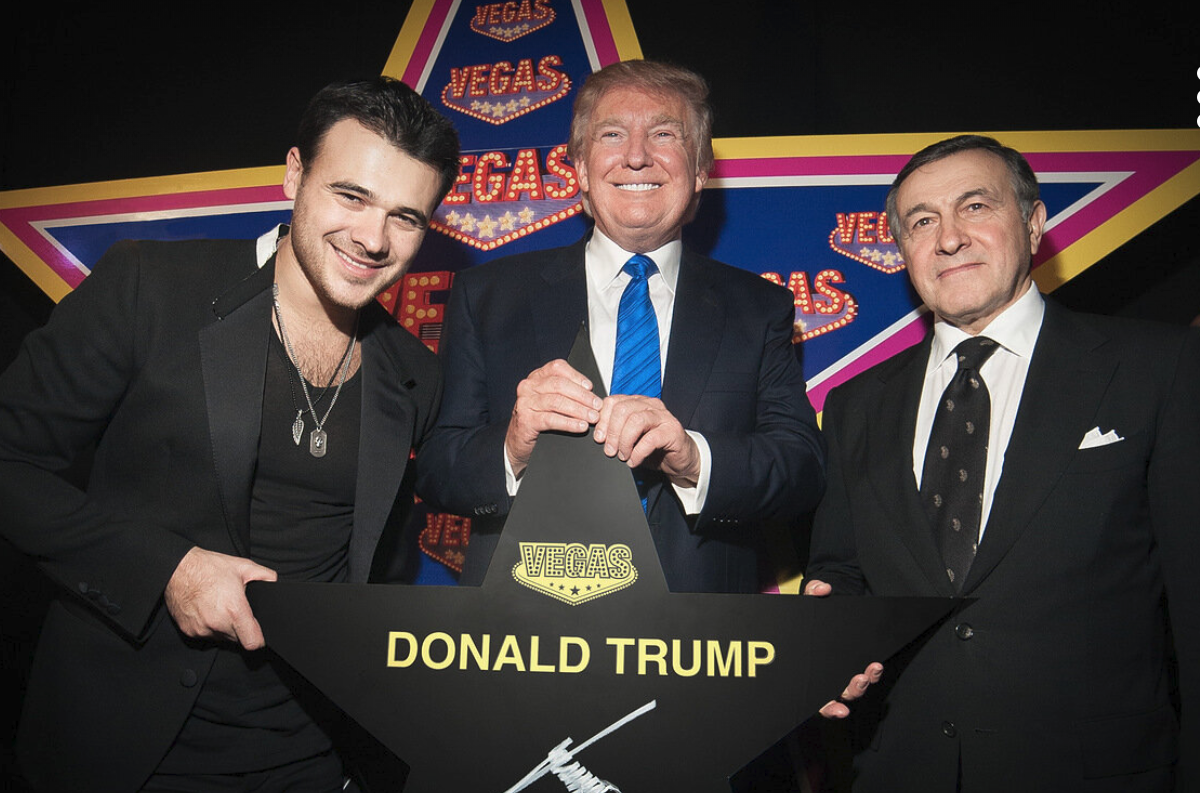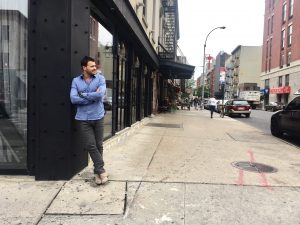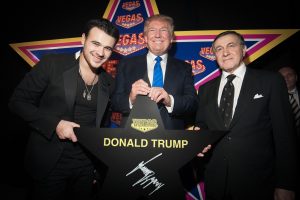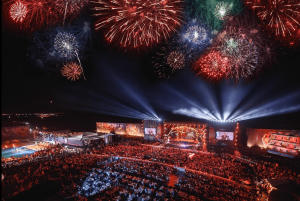
«My father was always against Trump Tower in Moscow, I was for it»: Emin Agalarov on Mueller probe and Russian meddling exclusively to The Bell
Last week, special counsel Robert Mueller filed his investigation which lasted almost two years. Mueller confirmed that Russia interfered in U.S. elections, but he wasn’t able to prove that Donald Trump colluded with Russia.
Among the main themes of the investigation into Russian interference were three incidents featuring Crocus Group co-owners Emin and Aras Agalarov. In 2013, the Agalarovs hosted the Miss Universe contest in Moscow, discussed joint construction of a Trump Tower in Moscow, and helped organize the infamous meeting between lawyer Natalia Veselnitskaya, who supposedly had compromising information on Hillary Clinton, and Donald Trump’s son, his son-in-law Kushner, and the then head of Trump’s election campaign, Paul Manafort.
In an exclusive interview with The Bell, Emin Agalarov shared his version of these events for the first time since the beginning of the investigation.
On the results of the investigation
Q: How did you react when you learned that Mueller filed his report?
A: I was happy, of course. But you know we always knew that this would be the result. After all, I am the organizer of that fantastical meeting and I know what actually happened (referring to the meeting in Trump Tower which became one of the main incidents looked into by the investigation – The Bell). Mueller and his team wanted to grab onto this meeting with all of their might. For two years they searched and didn’t find anything. I understand if the investigation would have taken three, four months. But two years is absurd, it seems like they tried to squeeze each drop of blood from the finger, and even that they couldn’t manage.
It’s upsetting that I lost so much time. I was ready to answer the investigators’ questions, I planned to give a statement during my tour, and I even set aside two weeks especially for this purpose. I don’t have anything to hide. But just a few days before my tour was due to begin, my lawyer called me and said that Mueller is ready to hear my statement, and just sent the subpoena to the airport. If you receive the subpoena, you automatically become part of the investigation as a witness and you can’t leave the United States until the investigation is over. At that moment, the investigation had already lasted two years, and I wasn’t ready to be held in the U.S. I would have had to change half of my life, I have four children, I can’t sit and wait until the investigation is over.
Therefore, I decided not to go on tour. They [Mueller’s team] probably hoped that I wouldn’t cancel my tour because they understood that cancelling the tour leads to large financial losses. But I did it. Naturally, they then began to get in touch with my lawyer and tried to make a deal, but it was already too late. Now everything is over, and I will go on tour in the fall.
Q: In addition to Mueller’s investigation, there is a lawsuit in which both you and your father are the defendants. Your lawyers tried to have the lawsuit recalled. What is the current status? Are you not afraid to go on tour in the U.S. given the lawsuit?
A: Mueller’s investigation was the main event; we didn’t really pay particular attention to everything else. Mueller didn’t scare me; I simply didn’t want to have to sit in the U.S. until the investigation was over.
Q: How much money did you lose when you cancelled your U.S. tour?
A: Roughly half a million dollars. I had sold out concerts in four of five cities, except Miami. I refunded all tickets purchased – I had to take on that risk myself. But I hope that I will be able to earn it back. We didn’t expect that the tour would sell so well – 3,000 tickets in New York, 1,500 tickets in Los Angeles. Now we will begin sales more than half a year in advance, and we will hire larger concert venues. But in general, my main goal isn’t to make money from music. It’s great if I break even. For me, making music isn’t so closely tied to making money like it is for other artists, because I have other sources of income.

Emin Agalarov
On Miss Universe 2013 and meeting Donald Trump
Q: You said in an interview that you joined the Miss Universe team through your music video. How did that happen?
A: It was 2012, and we finished recording the album Amor in a studio in New York and were eating dinner in a restaurant with Rob Goldstone, who was my press agent at that time. We chose a single and wanted to make a video for the song in Los Angeles. I said to Rob, “let’s find the most beautiful woman in America and shoot the video, how can we do that?”. He answered, “there are modelling agencies”. I asked if there is someone with a title, and Rob said, that there is Miss America and Miss Universe. “That’s what we need!,” I replied.
I immediately learned that Goldstone had a contact to Miss Universe 2012 [Olivia Culpo] because many years earlier he had represented one of the winners of the contest. In addition, Culpo was herself a musician, that was another reason why Rob knew her. He called, and word for word said that a Russian singer wants to shoot a music video. She quickly agreed. Her day rate was several thousand dollars, not a lot of money because we only needed one day to film the parts of the video with her. After that, we went to have dinner with the head of the Miss Universe contest, Paula Shugart. It was from her that I learned that the owner of the contest is Donald Trump.
Q: Did that name mean anything to you back then?
A: Of course. When I was in university, I passed Trump’s mushrooms of skyscrapers every day for four years in a row in New York on my way to class. When you live in the U.S. and travel, you see his name everywhere. There is a Trump Plaza or Trump Hotel in every city. Then, we all saw Trump in the movie Home Alone. I didn’t have any intention of meeting him, and I think he also didn’t plan on meeting me.
Paula [Shugart] said that they had wanted to bring Miss Universe to Russia for a long time, and they looked for a venue: “and we found a place in Moscow, it’s called Crocus City Hall, there you could host something like that.” I said, “I can probably be useful”. From that, our cooperation began.
A little while later, the Miss Universe team came to Moscow, I met them, and we discussed terms for several days. In June 2013, Trump invited our entire family to the Miss America contest in Las Vegas. We met for the first time, and we also signed the contract then. In November 2013, we hosted the contest in Russia – looking back it seems that all negotiations took about half a year.
Q: How much time did Trump spend in Moscow then?
A: Two days, I was always with him. During that time there was a press conference, a rehearsal, and Trump made an appearance in my music video. Sberbank, which was the contest’s financial partner, asked to organize a meeting between Trump and the bank’s most important clients. It was a “meet and greet”, there was no business which came out of it.
Q: The Washington Post wrote that Trump had the idea to meet with Vladimir Putin and that Trump asked you to organize a meeting. Did that happen?
A: When he was in Russia, Trump, of course, asked if Putin would come if we invited him. We, of course, said that we invited him. The contest has a huge audience, is watched by millions of viewers, and is among the top 5 events most watched events on global television. It was a perfectly normal request. The organizers want the president to attend because it increases the profile of the event.
If I’m not mistaken, my father invited Putin through his press secretary. And either he or someone else in the presidential administration said that the president would like to come, but can not because the king of Netherlands was in Moscow. Putin did not attend the event. I think maybe he would have come if he had the time. But the American media positioned it as if the whole contest was designed to introduce Putin to Trump. It’s some kind of conspiracy theory.
Q: Which business goals did you have when you decided to host Miss Universe? What did you get out of it?
A: To increase the profile of the venue. To be honest, I thought I could earn something from such a big event, and attract major partners. But we didn’t take into consideration that if in June you plan to host an event in November, all of the company’s budgets for that year are already closed. In the end, we lost money on the event; we lost about $2 million. It is a palpable figure if you consider that one concert in Crocus City hall can bring in $1 million.
Q: Did you make any attempts to cooperate with Trump after Miss Universe?
A: After the contest, the idea was raised to build a Trump Tower in Moscow. My father was always against it, I was for it. He thought that the Trump brand doesn’t add anything new – “I myself can build something better, why would I pay a franchise fee?”. My position was as follows: we plan to build 14 towers, why not give one of them Trump’s name? We would have paid several percent for the name and would have made 10-15% on each apartment we sold. Even if in 2013 people in Russia didn’t know who Trump was, you could have said to them: you see, this is Trump Tower, it is prestigious, it’s on 57th Street in New York, and on Chicago’s central avenue. And now there is one at Crocus City too. There was an idea to bring brands together. You walk into Crocus City Mall and there is Chanel, Prada. Here it would be the same: there would be a tower named after Trump, a Holiday Inn, an Agalarov Tower.
We signed a letter of intent with Trump Organization – but it isn’t legally binding, and an NDA. Slow negotiations were held not with Trump himself but with his team and gradually ended in a dead end. And when Trump began to run for president, they ended altogether. We learned already after the fact that they discussed building Trump Tower with different developers.
Q: Beyond business, on a personal level, are you in contact with him?
A: After the media circus about that meeting [in Trump Tower], we ended contact with Trump, and with Rob Goldstone, and I even stopped discussing this topic with my father. The lawyer warned us: “if you will sit somewhere around a table with your friends and will discuss what happened, an extra person will appear who will then give evidence”. For this same reason, we don’t really speak to the media: “if you give two comments, they will anyway be different, and people investigating a case, will use those differences against you,” the lawyer explained.
Q: And now, do you plan to get in contact with Trump again?
A: I doubt it.

About the meeting in Trump Tower
Q: When you asked Goldstone for help to organize a meeting in Trump Tower, did you think that it would have such an impact?
A: Of course not. It was a standard request to help organize a meeting. My father called me with a question: can you organize a meeting with someone from the Trump Organization in New York? Even with someone other than Trump. I asked Rob [Goldstone] to handle it. After the meeting, we spoke on the phone, and I asked, “so how did it go?”. He replied, “this is the most ridiculous meeting I have ever attended”. I asked, “why?”. He said, “it is just ridiculous, don’t even bother”. My father forgot about the meeting, I forgot. It was that unimportant. We remembered only when it burst into the media. Rob then even wrote a book about the meeting, “How an Email Trumped My Life».
Q: Speaking of the email. From the testimony of the meeting’s participants to the Mueller investigation, one could conclude that it was about the Magnitsky Act. Goldstone wrote in his email requesting a meeting that the Russians have information about Hillary Clinton. Why did he do that?
A: I think he simply wanted to speed up the process. Like, if there is bait, they will reply faster. In Trump’s organization everyone is busy, if you simply call and say, “tomorrow I need to meet with some random people”, nothing will happen. I think some kind of political moments might really have been discussed at that meeting. That woman, the lawyer (Natalia Veselnitskaya. – The Bell) had not just the Magnitsky Act in her plans, I think. But I am not political and I don’t know the details. I still haven’t met that woman and I only read about her in the media. It’s possible that my father worked with her.

Exhibit from Rob Goldstone interview/Judiciary.senate.gov
Q: What do you think, why did he focus on this so much? Some unknown woman, some Magnitsky List. Who asked for her?
A: It’s difficult to say. I think that my father has such a personality that even if she simply once worked with him, and then asked to organize a meeting, that he wouldn’t have refused her request. You understand, organizing a meeting isn’t some kind of exclusive thing. It wasn’t important for my father, therefore he asked me to do it. It wasn’t important for me, so I asked Rob.
If someone would have been behind her, who might have been important to my father, he would have himself called Trump personally and requested a meeting. If I had understood that it was really important, I would have reached out to Trump myself or to his son. But we all passed that on to other people, there were 10 people in the chain. Because it wasn’t important to us.
On current Crocus Group Business
Q: You said in one interview that you always separate business tasks with your father. Which are yours now?
A: All the restaurants (we have about thirty-five of them in Moscow) and the commercial real estate (VEGAS complexes, Crocus City Mall, Crocus City Hall and Vegas City Hall, etc). I also deal with our chain of fitness centres, the Sea Breeze Resort in Baku and the shops.
Another thing is my music business, which is separate from the Crocus Group. I have from 50 to 80 performances per year, sometimes even up to 100. This is not only in Russia but also in Europe, Kazakhstan, Georgia, Azerbaijan, etc. I have also launched a group of projects under the name Zhara (‘The Heat”). Under the same umbrella, there is Zhara Music label to which 50+young Russian singers, extremely popular among teenagers and young adults, are signed. They are doing really good at streaming services. Also, there is Zhara TV channel, a radio station, a prize, and a festival in Baku which we bring to Dubai this year.

The Heath festival
Q: In recent years, the Crocus Group has been actively engaged in infrastructure projects. Do they bring any money at all?
A: You better address my father with this question. As far as I know, I did not bring him any money. The stadiums [for the World Cup] brought neither profit nor loss. But you should understand that Crocus works on those projects because they are assigned to us by the top figure in the country. Because if Crocus starts something, it finishes.
Q: One does not refuse such proposals?
A: Of course not. It would be weird: you live in Russia, you do business here, the president asks you to build something and your answer is: “you know, I can’t.” At least it is silly. I would not lie that I don’t want the company to have fewer projects of that sort. The majority of our resources are currently involved in the government projects and we can’t build much for ourselves, it paralyzes business. But this is all for the country. Not everything has to be done for ourselves.



